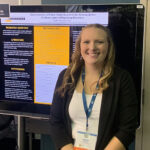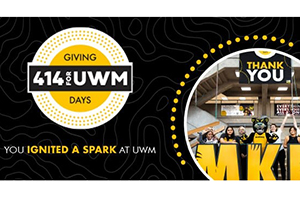What will a good idea get you? At UWM, maybe your own company.
The Student Startup Challenge provides funding and classroom support to help winners develop prototypes, mobile applications and business plans. Four of this year’s winning entries could change the game for athletes.
Stoking the pace of speed skating
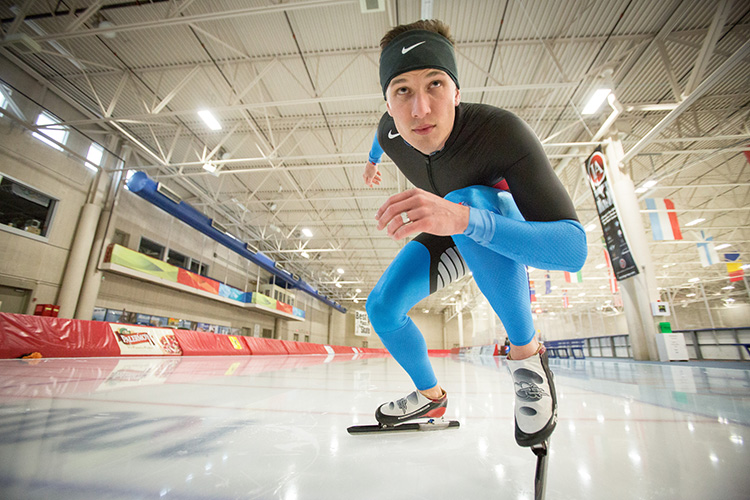
Gaining an edge at the start of a race tops competitive speed skaters’ wish lists. With this in mind, Brent Aussprung redesigned the skate used by professionals so it can deliver power when they need it most.
Aussprung has first-hand experience. At 21, he was in line to compete on the U.S. Olympic speed skating team when an injury benched him.
“I wasn’t planning on retiring as a professional skater then. In fact, I enrolled at UWM so I could stay close to the Pettit Center,” the engineering senior said. “Then, once I started school, I began to make new dreams and plans for myself.”
His “hybrid clap skate” was a hobby until he heard about the Student Startup Challenge. “After that, I could see more possibilities,” he said. “If you can obtain some money to develop it, then why not do it?”
Technology makes track meets safer
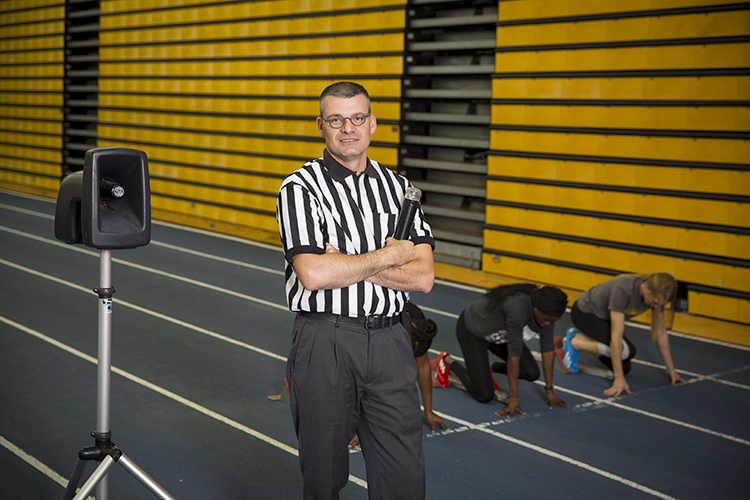
Adam Wickersham loves every thing about refereeing high school and college track meets — except the official starter gun he uses to begin each race.
“I essentially have to bring a gun to the meet,” said Wickersham, a recent graduate of the Executive MBA program in the Lubar School of Business. “It shoots blanks, but it’s loud and I have to treat it as a firearm.”
Wickersham designed a starter gun that is safer, easier to use and less expensive than what is currently available. His “race torch” emits a loud tone and a flash of light, linked to an automated timer that is precise to a one-thousandth of a second.
Compared to the standard device, which runs in the thousands and is mostly rented, his prototype costs $60 to make.
Swimmers get coaching on demand
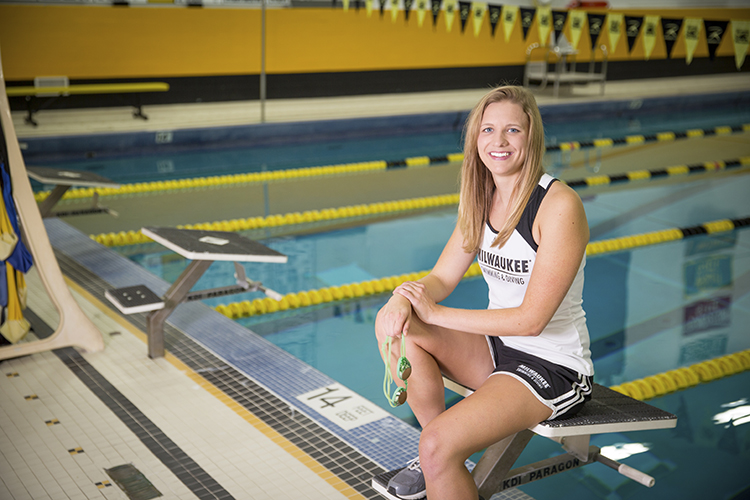
Swimmer Erika Pliner was always frustrated that she could not get immediate feedback on her stroke, which could help her shave seconds off during a race.
The recent engineering graduate has developed a product that allows coaches to advise their swimmers from poolside. Pliner’s “Tech Goggles” offer wireless, one-way communication in real time to the swimmer as part of the athlete’s eye protection.
The idea originated as an assignment for a course, said Pliner, who swam for the Panthers and now serves as one of their assistant coaches.
“This could make the difference in competition,” she said. “And there’s nothing existing on the market.”
Better benchmarking for amateur athletes
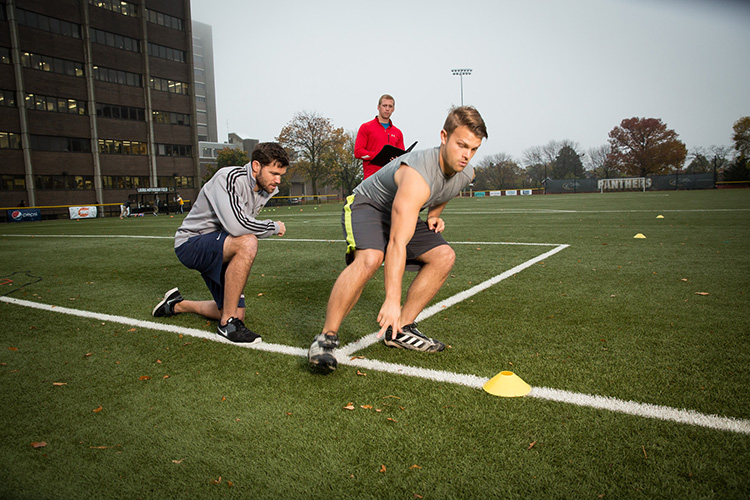
An online tool called My Combine provides an athletic testing service with an online tool for accurately assessing athletes’ skill levels.
Jeremy Tiedt, Justin Bohler and Brandon Tschacher, all UWM alums, modeled their product on the National Football League’s Combine – a series of tests the national league administers to players before the draft to get a snapshot of the athletes’ range of abilities.
The same skills are recorded for high school athletes, but with stopwatches less precise than the NFL’s motion-sensor timing system.
Eventually, My Combine also will be available to individuals who want to track their own information and compare themselves to others.

